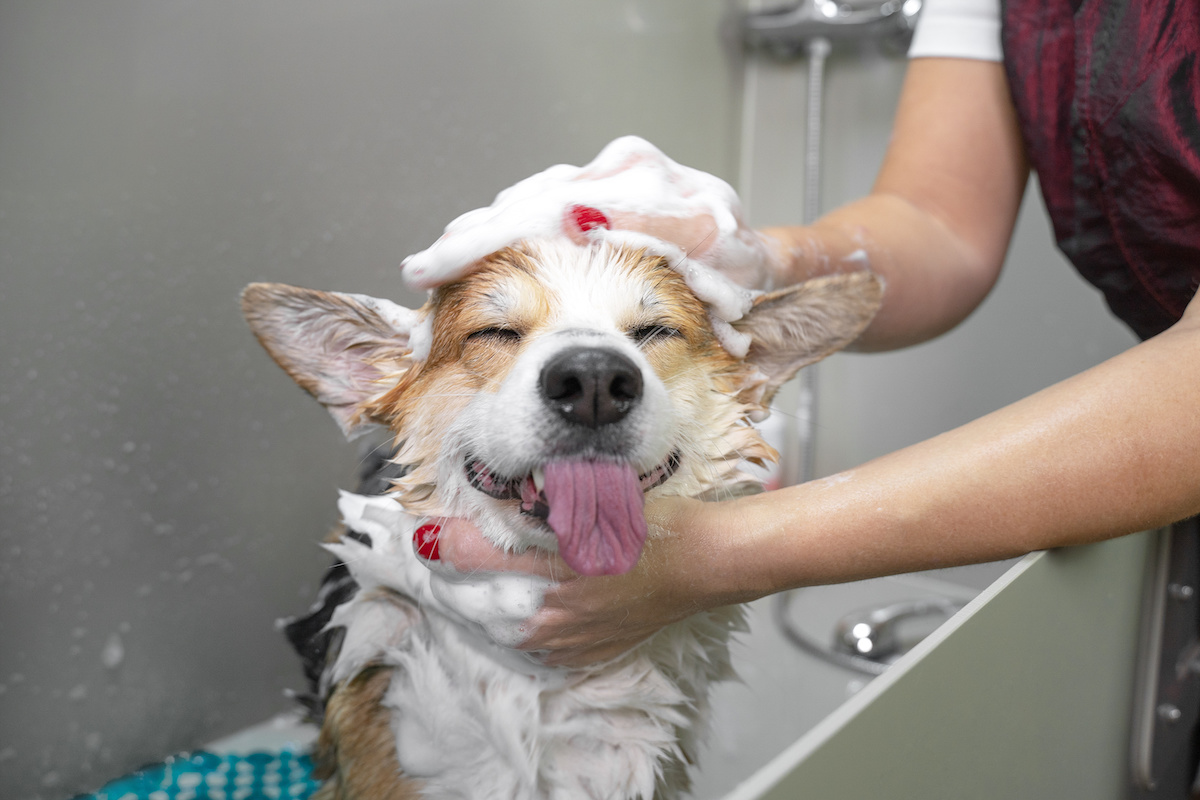Who doesn’t love the feeling of being squeaky clean after a full day? For many people, personal hygiene is a clear part of their daily routine. In the morning, at night, and consistently throughout the day. Our hygiene is attributed to more than just keeping ourselves clean, but also the space in which we exist. Hygiene is also a big part of how we feel going throughout our day. If we feel clean and fresh, we are more likely to be healthy and happy while we go through our daily lives. It is no different for our pets. Granted, they may have a different idea of hygiene and dependent on the animal, they may even take care of the bulk of their hygiene on their own. But for some pets, by being their owners, we are responsible for their hygiene and their general quality of life.
For example, cats are more likely to take care of their own bathing versus a dog. However, the role we would play in their hygiene is maintaining a clean litter box and a fresh bowl of water. For some pets, like hamsters, their hygiene is primarily based on if their environment is clean and for others, like dogs, we are responsible for bathing them. Here are some good tips for keeping your pet in good health and clean:
Clean Your Cat’s Litterbox Every Day
If the smells of a particularly dirty litter box aren’t enough to warrant cleaning, consider how many germs are being spread throughout your home by leaving it dirty. Take a moment to picture all the places your cat plays and relaxes around your house during the day. Their paws are all over your home and most likely on surfaces like couches, chairs, pillows, beds, countertops, and tables.
Litterboxes are ideal breeding grounds for germs and bacteria. Cat feces can cause Toxoplasmosis, which has flu-like symptoms. This can be especially harmful in pregnant women and is known to cause birth defects. Litter boxes are also breeding grounds for parasites like hookworm, roundworm, and ringworm. By cleaning your cat’s litterbox every day you can reduce the chances of these spreading throughout your house. You can also cut down on the build-up of ammonia.
Best practice tips: Make sure that there is the same number of litterboxes in your house as there are cats. After emptying out the litter box, wash the box with mild dish soap and water. If you use anything stronger, it might make a sensitive cat avoid the litterbox altogether and lead to accidents in the house.
Wash Your Pets Bedding
Besides being a magnet for dirt, grime, dander, and dust, your pet’s bedding can also harbor fleas, ticks, larvae, eggs, and other skin parasites. This can be helpful for you and your family. By regularly cleaning the collection spots for these known allergens, you can improve the air quality in your home. This can also lead to a longer-lasting air filter and HVAC system in your home.
Best Practice Tips: vacuuming the bedding in between cleanings is good for a quick clean up. Wash your pet’s bedding using fragrance and dye-free detergent and in hot water. The bedding should be cleaned and then dried using heat for at least 20 minutes. This should be done weekly or whenever it appears dirty.
Clean Food and Water Dishes
Just like you wash your dishes after using them, you should regularly wash your pet’s bowls. You may think that your countertops or faucet handles may be the dirtiest places in your house, but your pet’s bowls are actually closer to the top of the list for germiest areas in your home.
The bacteria that grow in the bowls can cause illness in pets and children if they touch the bowl.
Best Practice Tips: Wash food bowls every day and water bowls every other day. Run them through the dishwasher or use hot, soapy water. If your pet regularly leaves chunks of food, be sure to wipe them out to avoid bacteria growth.
Be Consistent About Flea and Tick Treatments
By arming your pet with the proper flick and tick prevention, not the homemade kind, you can prevent a lot of issues down the line. Speak to your vet about what they recommend for your pet specifically. At Animal Care Center, we are also more than happy to inspect your pet for any issues and help with the treatment. Fleas and ticks can transmit diseases to your pet and make their life very uncomfortable.
Best Practice Tips: If you suspect your pet has ticks or fleas, talk to your vet. After getting treatment to remove any fleas, be sure to clean the house and remove any possible breeding grounds or nests. Ask your vet how you can prevent future infestations.






